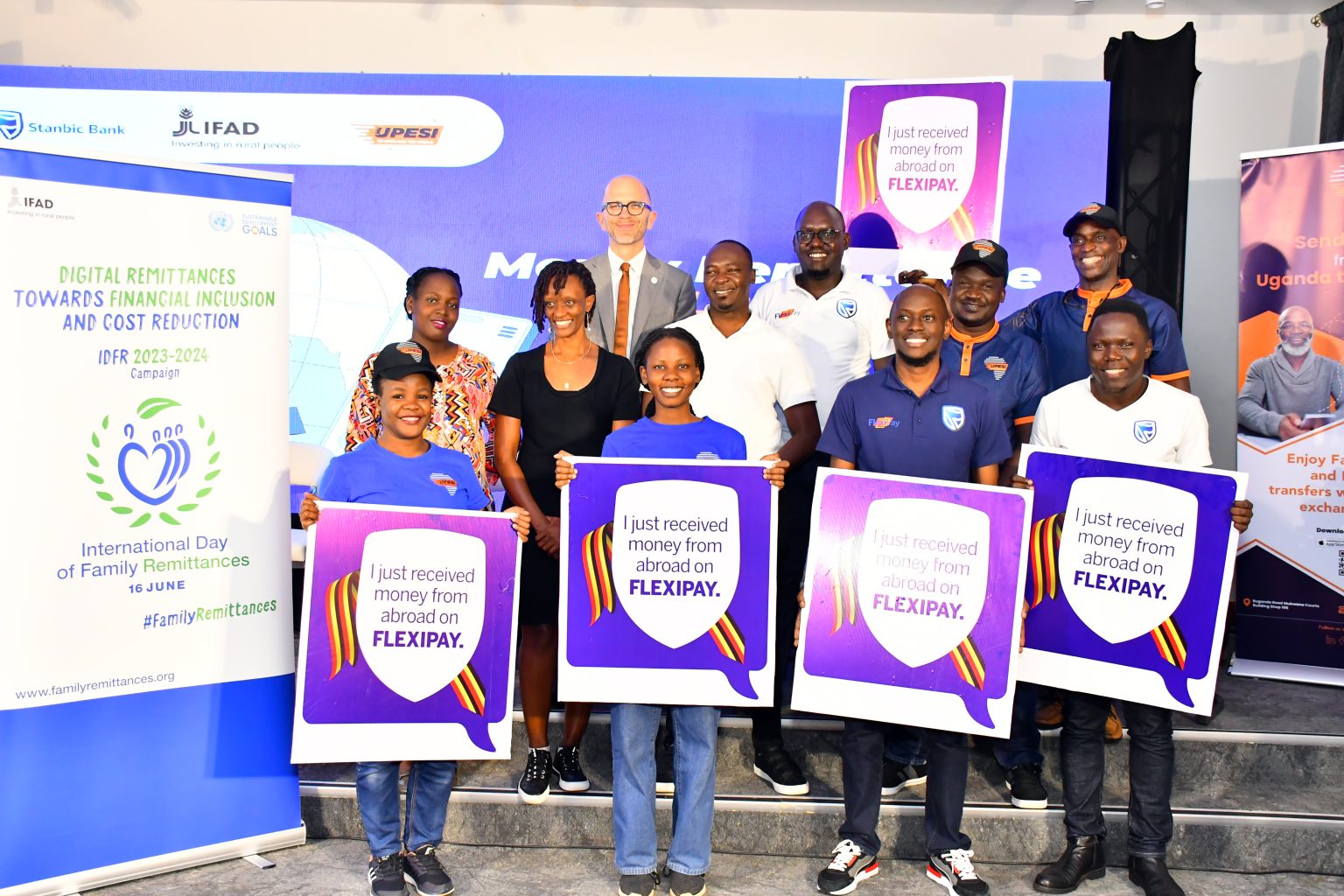- Details
- East Africa
- 1000
FlexiPay, Stanbic Bank’s digital payment platform, has partnered with International Fund for Agricultural Development (IFAD) and Upesi Money Transfer, a regional payments company, to enable FlexiPay users to send, receive money from abroad with ease.
Josephine Nakato Kasacca, Lead Customer Experience & Operations for FlexiPay said the new partnership reflects the Bank’s commitment to support and enable customers to complete borderless financial transactions in a convenient, secure, quick, and affordable manner.
She said effective June 14, 2024 customers can use FlexiPay to send money to over 20 countries. However, plans are to increase this number to 70 by the end of the year.
“In line with our purpose; Uganda is our home, we drive her growth, we believe that by helping as many people as possible meet their financial needs with innovative services, goes a long way in driving economic growth. FlexiPay is ideal platform for both sending and receiving payments and let me emphasize again, very affordable! I want to take this opportunity to call upon all of you to use it because there are dozens of unmatched benefits one cannot find on other similar platforms,” she said.
Some of the foreign countries Ugandans can receive money from include; Kenya, United Arab Emirates, United Kingdom, Qatar, Oman, United States, South Africa, France, Canada, Israel, South Korea, India, Germany, Ireland, Netherlands, Kuwait, Bahrain, ARE, Australia, Poland among others.
She disclosed that FlexiPay is very safe to use, because it uses mobile applications and systems based on advanced encryption and other security measures to protect the sensitive financial information and transactions of all users.
Julius Okwana, the Upesi Money Transfer Country Manager expressed excitement about the possibilities that the partnership will realize. He said their company is committed to providing innovative solutions that simplify financial transactions.
He said coupled with FlexiPay’s rapidly increasing uptake in Uganda and Upesi’s extensive regional and global network, the partnership promises to make cross-border money transfers faster and more convenient without making unnecessary visits to banking halls.
“With the increasing demand for cross-border transactions in Uganda, this partnership between FlexiPay and Upesi is poised to revolutionize the way people send and receive money internationally. It is expected to drive financial inclusion and promote economic growth in the region.”Okwana said.
He assured users that all transactions are secured and protected from potential cyber threats.
As of 2023, there are estimated to be around two million Ugandans living, and working abroad. There are also a good number of Ugandans here, who are doing plenty of business with foreign companies.
The recent World Bank report indicates that a total amount of money remittances receive in Uganda on an annual basis is approximately $1.43 billion, that about 5.32 trillion Ugandan Shillings.
According to David Berno, the International Fund for Agricultural Development (IFAD) Head Remittance and Inclusive, remittances play a crucial role in reducing poverty and enhancing food security in developing countries.
He said, “We are excited to be affiliated to this campaign because money remittances enable families to meet their basic needs, such as food, shelter, and education, and can also contribute to local economic growth through increased consumption and investment. Therefore by supporting money remittances, IFAD aims to promote financial inclusion, empower smallholder farmers and rural entrepreneurs, and ultimately contribute to sustainable development and poverty reduction.” By Charity Mbabazi, The Tower Post






